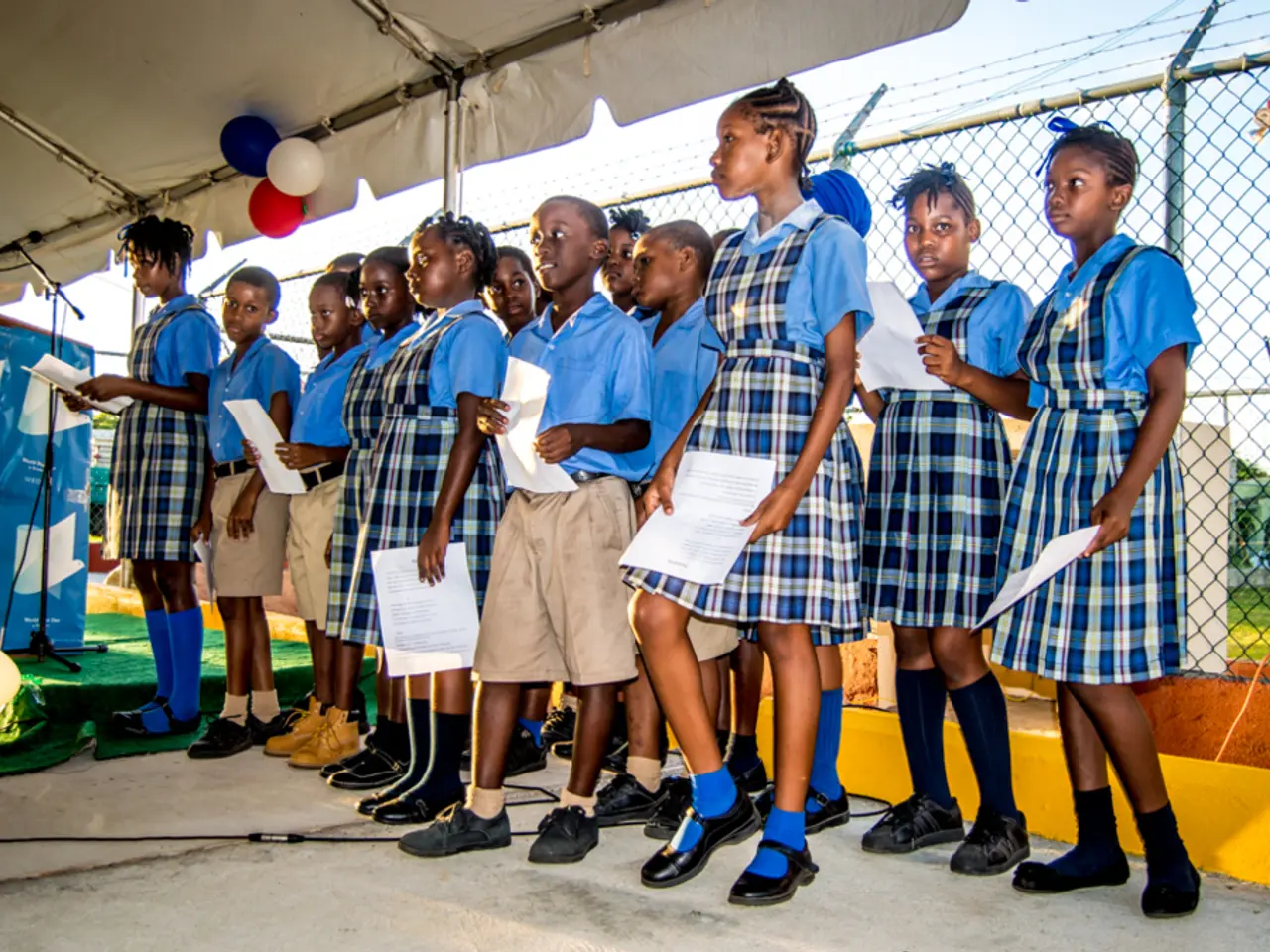"Take it easy, there's no need for mourning"
In a bid to create a safer, more focused, and inclusive educational atmosphere, Karl-Lerbs-Straße primary school in Germany has implemented a ban on mobile phones and smartwatches. The decision was driven by several key concerns, including reducing distractions, preventing cyberbullying, promoting social interaction, enhancing focus and academic performance, and addressing equity issues.
The ban on these devices aims to minimise distractions that notifications, games, and social media can cause, pulling students' attention away from learning. Mobile phones and smartwatches can also be used for bullying or spreading harmful content among students, making supervision harder for teachers.
By limiting phone use, the school hopes to encourage students to interact face-to-face, which can improve social skills and the school environment. Studies have suggested that this measure correlates with improved concentration and better academic results.
Not all students have access to the latest digital devices, so banning phones can reduce social pressure and feelings of exclusion related to technology differences.
Legal experts were consulted to help formulate the rules, which state that carrying, calling, and filming with mobile phones and smartwatches is not permitted in school. The rules were approved by the steering group, the general conference, and the school conference with parental participation.
Initial training sessions for teachers and information evenings on digital media usage accompany these measures. Students are expected to keep their phones in their backpacks, turned off until the end of the school day. In exceptional cases, children may bring high-tech watches or mobile phones to school, but they must explain in writing why they need them.
The ban on mobile phones in schools will commence next Thursday. In case of non-compliance, the device will be confiscated until the end of the school day.
Ten-year-old Liron had a smartwatch but only used it when going to a friend's house to let her mother know she had arrived safely. Nine-year-old Nea, who has a smartwatch, says she doesn't miss it during school hours.
This ban is already in effect in some schools, and Principal Lütjen advises other schools that a phone ban brings peace because you don't constantly feel like you have to look at your device. Lütjen also mentions that children have gone outside to make calls during school hours.
It is recommended to leave the devices at home. On the schoolyard, there will be no one posing for selfies or swiping on smartphone displays. A set of rules was created to ensure a good, safe, and protected coexistence in schools.
The devices should be turned off or in 'school mode' in backpacks during school hours. The schoolyard will be a place where children can play and learn without the constant beeping of smartwatches or interruptions from parents calling during lessons.
The ban on mobile phones and smartwatches at Karl-Lerbs-Straße primary school aims to not only reduce distractions during work and academic performance, but also to address equity issues related to education-and-self-development, as not every student has access to the latest digital devices. The school's decision to limit digital devices also has implications on general news, as the schoolyard will now be a place where children can play and learn without interruptions from parents or outside distractions.




